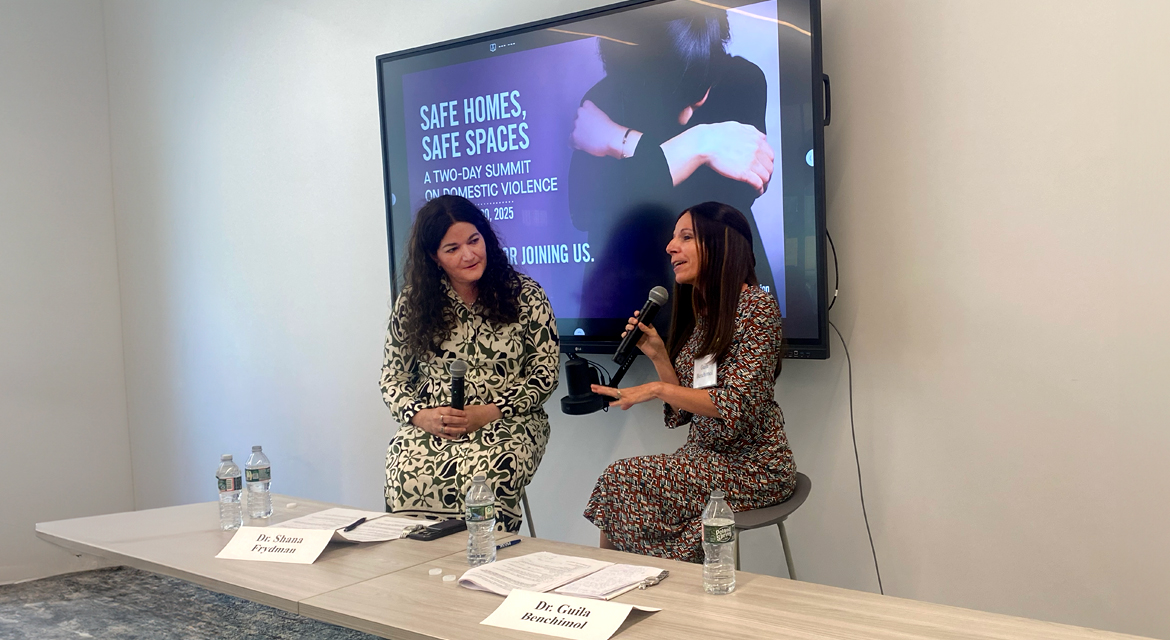Picture a crowded basement apartment where Masha, a 44-year-old Bukharian immigrant, lived with her three children, the youngest with autism, and a verbally and physically abusive husband. Masha had no health insurance, no bank account, and limited English.
Now picture this: a beautiful two-story building on the border of Borough Park and Bensonhurst – UJA’s Brooklyn Hub – where Masha, finally ready to find a way out, was greeted with coffee, cookies, and Hebrew. She was ushered into a private space, where she would go on to have regular mental health counseling.
Down the hall, an attorney from NYLAG, a UJA partner, helped her respond to her husband’s divorce complaint while also expediting her immigration process, unlocking key benefits like health care, SNAP, and cash assistance.
Masha’s social worker also helped her sign up for technology and professional skills training, so she could work toward financial independence for the first time in her adult life. Her youngest child was enrolled in summer camp, so Masha could pause and breathe.
Two different pictures: one of isolation and fear, the other of safety, dignity, and hope. And it’s all thanks to UJA’s Makom Shalom (“place of peace”), an interconnected network of services and nonprofit partners made possible thanks to a nearly $1 million investment by UJA in 2024.
Masha is one of the 300 clients helped this year by UJA’s Makom Shalom, which helps people access multiple lifelines — what we call “wraparound support” in the nonprofit world — like legal aid, mental health care, and workforce training at the same time. It’s a powerful example of UJA’s model in action: centralizing diverse services in one place to reduce the burden on people who already have enough to bear.
That’s the driving force behind our two hubs in Queens and Brooklyn, designed to help clients — who previously had to navigate multiple agencies while juggling barriers like limited access to transportation and child care — access services in one place. UJA’s comprehensive Covid-19 Impact Study revealed how lockdown had given rise to increased domestic violence. So when we conceived of the Brooklyn Hub, an office for domestic violence survivors was intentionally built into its infrastructure.
"We recognize that many people impacted by domestic violence don’t have access to their own bank account and have limited professional skills,” said Alex Roth-Kahn, managing director of UJA’s Caring Department. “So we’re focusing on helping them achieve financial mobility, removing a significant obstacle on their journey toward autonomy and safety.”
